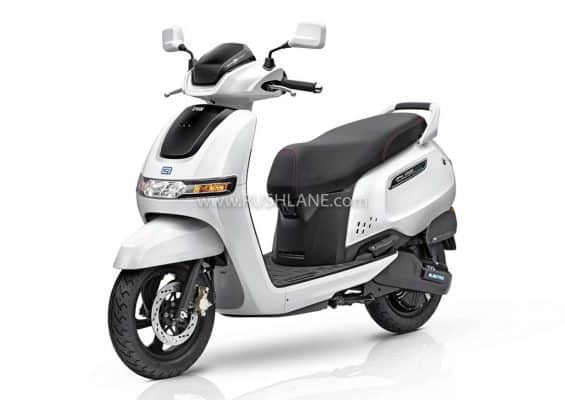In July 2020, Bajaj Auto sold 120 units of the Chetak EV while TVS Motor Company sold just 23 units of the iQube e-scooter
The Indian automotive industry is focusing more on all-electric powertrains than ever before. In fact, the Indian government offers several incentives and benefits for EV owners, especially in urban environments where electric vehicles showcase the best potential at present. Recently, the Delhi government announced price cuts up to Rs 1.5 lakh for a specific number of fresh EV registrations.
If we take the four-wheeler segment, there are only three desirable choices: Hyundai Kona, MG ZS EV and Tata Nexon. Meanwhile, Mahindra is almost ready with the all-new eXUV300 or XUV300 Electric. Once launched, it will be a direct rival to Tata Motors’ Nexon EV subcompact crossover. The Indian automaker has already rolled out the 1000th Nexon EV from the dedicated facility in Pune. This is quite impressive for a segment that was once alien to the wider majority of buyers.
Among scooters, our market has a host of affordable choices from Hero Electric, Ampere Electric and Okinawa Scooters. Mainstream brands Bajaj Auto and TVS Motor Company have also joined the party at a higher price bracket with the all-new Chetak EV and iQube, respectively.

In July 2020, Bajaj Chetak sales hit 120 units while the iQube could garner only 23 units. If we take the April-July quarter, sales touched the same 120 units for the Chetak and 50 units more for the iQube.
Priced from Rs 1 lakh ex-showroom, the Bajaj Chetak is powered by a 3kWh battery coupled to a 4.8kW (6.44bhp) motor good for 16Nm of mechanical torque. Range figures cross 95km on a full charge. It takes the e-scooter almost five hours to completely charge from empty, using a standard wall charger.
Carrying a starting price of Rs 1.15 lakh on-road (Bangalore), the TVS iQube has a 4.4kW (5.9bhp) hub motor rated at 140Nm of ‘motor torque’. Charging times are roughly the same but maximum range drops to almost 75kms.

India’s EV scenario
It is quite evident that electric powertrains work best in the scooter segment. In fact, one could argue that modern e-scooters are much better than conventional petrol-CVT examples. Premium e-scooters such as Ather Energy models have set a high benchmark in the industry in terms of design, features, performance and most importantly, their ability to remain relevant thanks to OTA updates.
The fact that certain electric vehicles are capable of upgrading itself with new features and functions just by connecting to the internet is something which the market did not anticipate a few years back. For the average ‘non-car’ person who just wants to travel from one point to another, EVs have started making more sense.

